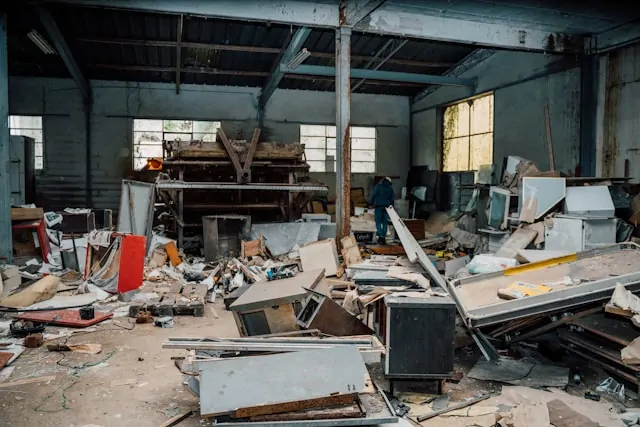If you have suffered an injury in Bakewell, whether at work, in a public place, or on the road, you may be entitled to compensation. Understanding your legal rights and the steps involved in making a claim is crucial to securing the support you need. This guide provides comprehensive information on how to navigate the claims process for various types of accidents.
Understanding personal injury claims
Personal injury claims are legal processes initiated by individuals who have suffered harm due to someone else’s negligence. These claims aim to provide compensation for physical, emotional, and financial damages resulting from accidents. In Bakewell, as in the rest of the UK, personal injury claims encompass a range of incidents, including workplace accidents, public place injuries, and road traffic collisions.
Workplace injury claims
Workplace injuries can occur in various settings, from offices to construction sites. Common causes include:
- Slips, trips, and falls due to wet floors or uneven surfaces
- Injuries from machinery or equipment
- Exposure to hazardous substances
- Manual handling accidents
- Lack of proper training or supervision
Employer responsibilities
Employers have a legal duty to ensure the health and safety of their employees. This includes:
- Providing adequate training and supervision
- Maintaining safe working conditions
- Conducting regular risk assessments
- Supplying appropriate personal protective equipment (PPE)
Failure to meet these obligations can result in employer liability for any resulting injuries.
Actions to do following an injury at work
If you suffer an injury at work, it’s important to:
- Seek medical attention: Prioritise your health and obtain a medical report detailing your injuries.
- Report the incident: Inform your employer and ensure the accident is recorded in the workplace accident book.
- Gather evidence: Collect witness statements, photographs of the accident scene, and any relevant documentation.
- Consult a solicitor: Seek legal advice to assess the viability of your claim and understand your rights.
Time limits for workplace injury claims
In the UK, you generally have three years from when the accident occurred to initiate a claim. Exceptions may apply if:
- The injury was not immediately apparent (e.g., industrial diseases)
- The injured person lacks mental capacity
- The injured person was under 18 at the time of the accident
Types of public place accidents
Accidents in public places can occur in various settings, such as:
- Slips and trips on pavements or in shops
- Injuries in parks or recreational areas
- Accidents in public transport stations
- Falls due to poorly maintained public infrastructure
Duty of care in public spaces
Local authorities, businesses, and property owners have a duty to maintain safe environments for the public. This includes:
- Regularly inspecting and maintaining premises
- Addressing hazards promptly
- Providing adequate signage for potential dangers
Steps to take after a public place injury
If you’re injured in a public place:
- Seek medical attention: Obtain a medical report for your injuries.
- Report the incident: Notify the responsible party (e.g., local council or business owner).
- Gather evidence: Take photographs of the hazard, collect witness details, and keep records of any expenses incurred.
- Consult a solicitor: Legal advice can help determine liability and guide you through the claims process.
Common road traffic accidents
Road traffic accidents can involve:
- Collisions between vehicles
- Accidents involving pedestrians or cyclists
- Incidents caused by poor road conditions
- Hit-and-run accidents
Determining liability
Liability in road traffic accidents is established by assessing:
- Driver negligence (e.g., speeding, distracted driving)
- Road conditions and signage
- Vehicle maintenance issues
Steps to take after a road traffic accident
Following a road traffic accident:
- Ensure safety: Move to a safe location if possible and check for injuries.
- Call emergency services: Report the accident to the police and request medical assistance if needed.
- Exchange information: Obtain contact and insurance details from all parties involved.
- Gather evidence: Take photographs of the scene, vehicle damage, and any relevant road signs or markings.
- Consult a solicitor: Legal guidance can assist in navigating insurance claims and pursuing compensation.
You generally have three years from the date of the accident to file a claim. Exceptions may apply for minors or individuals lacking mental capacity.
Types of compensation
Compensation for personal injury claims may cover:
- Medical expenses
- Loss of earnings
- Pain and suffering
- Rehabilitation costs
- Travel expenses related to treatment
Legal representation
Engaging a solicitor can provide:
- Expert assessment of your claim’s viability
- Assistance in gathering and presenting evidence
- Negotiation with insurance companies or responsible parties
- Representation in court if necessary
Many solicitors offer “No Win, No Fee” arrangements, reducing financial risk for claimants.
Conclusion
Suffering an injury due to someone else’s negligence can have significant physical, emotional, and financial impacts. Understanding your rights and the claims process is essential to securing the compensation you deserve. Whether your injury occurred at work, in a public place, or on the road, taking prompt action and seeking legal advice can make a substantial difference in your recovery and financial stability.
If you’re in Bakewell and need assistance with a personal injury claim, consider consulting a local solicitor experienced in handling such cases. Their expertise can guide you through the process and help you achieve favourable outcomes.



